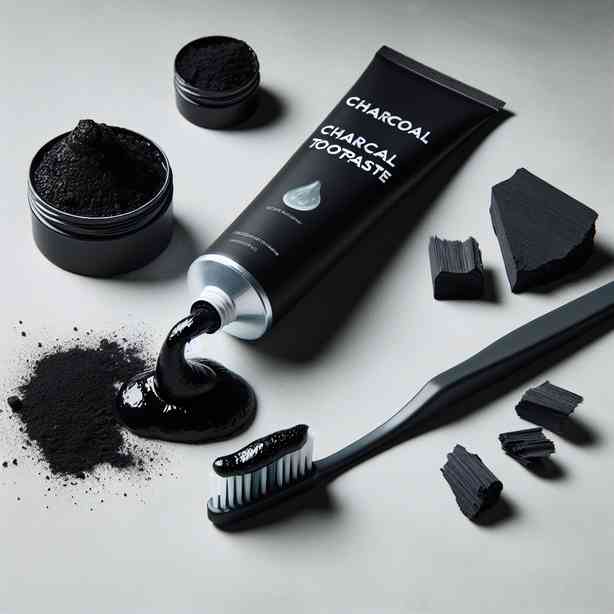
The truth about charcoal toothpaste has garnered much attention in recent years, primarily due to its rising popularity as a natural alternative to traditional whitening products. Many consumers are drawn to the allure of charcoal’s supposed benefits for oral health, with claims that it can effectively whiten teeth, remove plaque, and detoxify the mouth. However, before diving into the world of charcoal toothpaste, it’s essential to sift through the hype and determine what the evidence really says about its effectiveness and safety.
Activated charcoal is a form of carbon that has been treated to increase its surface area. This makes it highly porous, allowing it to absorb substances effectively. The use of activated charcoal for health purposes dates back to ancient Egypt, where it was employed to treat various ailments. In modern times, it is commonly used in emergency medicine for treating certain types of poisoning and overdose due to its ability to bind to toxins and drugs. However, the application of activated charcoal in oral care texts comes with a mix of scientific backing and anecdotal evidence.
One of the most frequently cited benefits of charcoal toothpaste is its purported ability to whiten teeth. This belief is primarily rooted in the idea that charcoal can absorb stains and discoloration on the enamel. While some studies suggest that activated charcoal might have a mild abrasive effect that can aid in scraping away surface stains, there are concerns about its long-term impact on dental health. The abrasiveness of charcoal can wear down the enamel over time, leading to increased sensitivity and a higher risk for cavities.
In contrast to traditional whitening methods, which often utilize hydrogen peroxide or carbamide peroxide, charcoal toothpaste does not chemically whiten teeth. Instead, its action is primarily mechanical. While it may provide some immediate visual results by removing surface stains, it does not alter the intrinsic color of teeth. Over time, relying solely on charcoal toothpaste for whitening could lead to enamel erosion, making teeth more susceptible to discoloration and damage in the long run.
Another area of concern related to charcoal toothpaste is its effect on overall oral health. Proponents claim that charcoal has detoxifying properties and can help eliminate harmful bacteria in the mouth. However, while charcoal may adsorb certain substances, there is limited scientific evidence to substantiate these claims concerning oral health. A healthy mouth relies on a balance of different bacteria, not just the eradication of certain strains. Overuse of charcoal toothpaste could disrupt this balance, potentially leading to issues such as oral thrush or other infections.
It’s also worth noting that many commercial charcoal toothpaste products contain additional ingredients, such as fluoride, which can have both positive and negative implications. Fluoride is a well-researched, effective mineral that helps prevent tooth decay and strengthen enamel. However, the presence of charcoal may impact the effectiveness of fluoride, as the adsorptive properties of charcoal could bind to fluoride, diminishing its benefits. Therefore, while some products claim to harness the best of both worlds, the actual efficacy of these formulations remains uncertain.
Moreover, consumers should be cautious about the regulatory status of charcoal toothpaste. Unlike conventional toothpaste, which is subject to strict manufacturing and labeling regulations by organizations such as the American Dental Association (ADA), charcoal toothpaste lacks such oversight. As a result, many products on the market make exaggerated claims without substantial scientific backing. It’s advisable to consult with a dental professional before incorporating charcoal toothpaste into your oral hygiene routine, especially if you have existing dental issues or concerns.
Another aspect to consider is the potential for side effects. While activated charcoal is generally regarded as safe for external use, some individuals may experience adverse reactions. These can include gum irritation and increased tooth sensitivity. For those with pre-existing oral health issues or sensitive teeth, the abrasive nature of charcoal toothpaste could exacerbate these conditions, leading to discomfort or further complications.
Lastly, it’s essential to evaluate alternatives to charcoal toothpaste before adopting it as a primary oral care product. Numerous whitening options are available that are both safe and effective. Products containing hydrogen peroxide, for instance, have demonstrated more reliable whitening abilities and come with established usage guidelines. Over-the-counter whitening strips and gels can also yield positive results without the risks associated with charcoal.
In conclusion, while the popularity of charcoal toothpaste cannot be denied, it’s crucial to approach this trend with caution. While it may offer some short-term visual benefits regarding stain removal, the potential risks to enamel and overall oral health warrant careful consideration. It may be beneficial to discuss your individual needs with a dental professional, who can provide tailored advice based on your oral health profile. Exploring alternative whitening products with established safety and efficacy can lead to better, more sustainable oral care solutions in the long run. Remember, a proper oral hygiene routine—complete with regular brushing, flossing, and routine dental visits—is the cornerstone of maintaining a healthy, bright smile.


